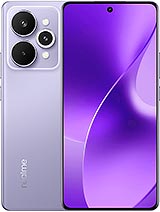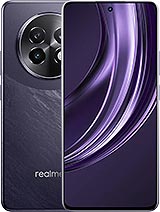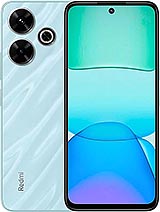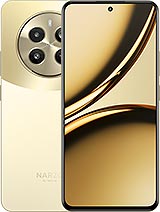Nothing Phone (2) alternatives
Tap above to see alternatives.
Realme 14T alternatives
Tap above to see alternatives.
Nothing Phone (2)
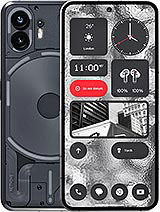
Nothing Phone (2)
-
Snapdragon 8+ Gen 1
4 nm
-
4700 mAh
45W
-
6.7"
1080x2412 pixels
-
50 MP
4K@30/60fps
- Specs
Realme 14T

Realme 14T
-
Dimensity 6300
6 nm
-
6000 mAh
45W
-
6.67"
1080 x 2400 pixels
-
50 MP
1080p@30/60
- Specs
1x3.0 GHz Cortex-X2
3x2.5 GHz Cortex-A710
4x1.80 GHz Cortex-A510
2x2.4 GHz Cortex-A76
6x2.0 GHz Cortex-A55
12GB 256GB (UFS 3.1)
12GB 512GB (UFS 3.1)
8GB 256GB (UFS 2.2)
f/1.9, 24mm (wide), 1/1.56", 1.0µm, PDAF, OIS
50 MP
f/2.2, 114˚ (ultrawide), 1/2.76", 0.64µm, AF
f/1.8, 27mm (wide), 1/2.88", OmniVision OV50D40, PDAF
2 MP
f/2.4
1080p@30/60fps
f/2.5, (wide), 1/2.74", 0.8µm
f/2.4, 23mm (wide), 1/3.09", Sony IMX480
SIM1: Nano, SIM2: Nano
SIM1: Nano, SIM2: Nano (Hybrid)
19 5G bands
n1, n2, n3, n5, n7, n8, n12, n20, n25, n28, n30, n38, n40, n41, n66, n71, n75, n77, n78
9 5G bands
n1, n3, n5, n8, n28, n40, n41, n77, n78
In this performance comparison, the Nothing Phone (2) with its Qualcomm Snapdragon 8+ Gen 1 (4nm) performs better than the Realme 14T with the Mediatek Dimensity 6300 (6nm), thanks to superior chipset efficiency.
Both Nothing Phone (2) and Realme 14T offer the same software support — 3 years of OS updates and 4 years of security updates.
Both Nothing Phone (2) and Realme 14T feature AMOLED displays, offering vibrant colors and deeper blacks. Both smartphones offer the same 120 Hz refresh rate. Realme 14T also boasts a brighter screen with 2100 nits of peak brightness, enhancing outdoor visibility. Both phones have the same screen resolution.
Realme 14T features a larger 6000 mAh battery, potentially delivering better battery life. Both devices support the same wired charging speed of 45W. Nothing Phone (2) supports wireless charging at 15W, while Realme 14T does not support wireless charging.
Realme 14T offers better protection against water and dust with an IP69 rating.
¹ Scores can vary even with the same chipset due to RAM, thermals, and software optimization.




